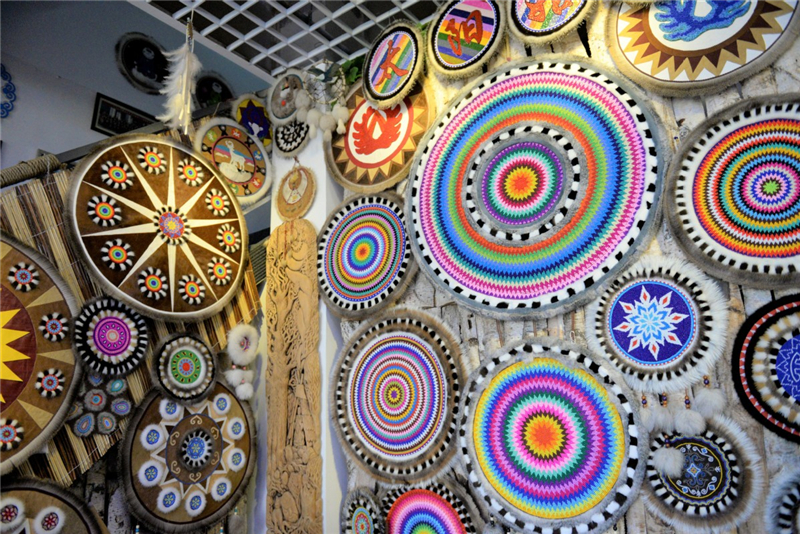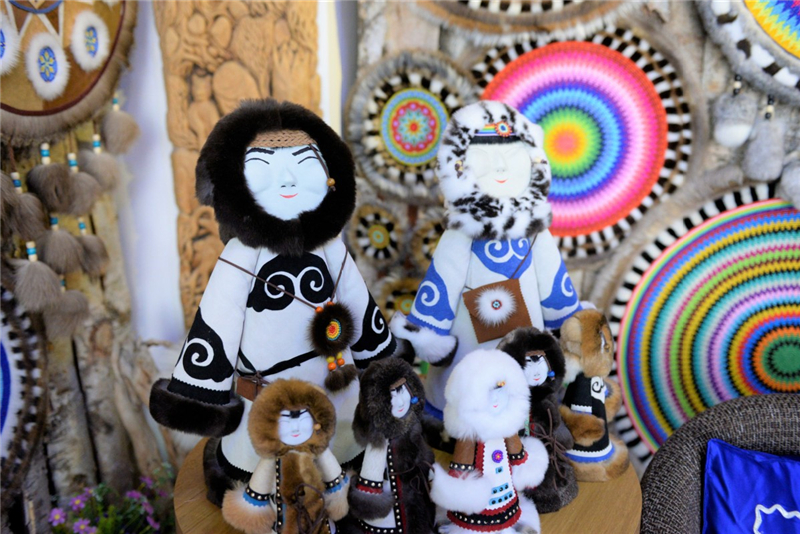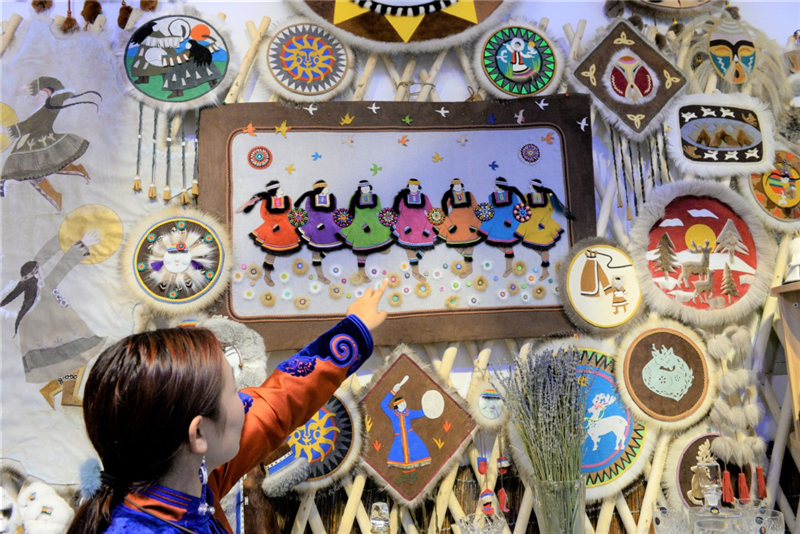Woman shines with sunflower crafts in Inner Mongolia grassland

The handmade sunflowers hanging on the wall at Wuren's workshop in Hulunbuir, Inner Mongolia autonomous region, on Aug 3, 2020. [Photo by Zhao Shiyue/chinadaily.com.cn]
With interest-free loans offered by the Hulunbuir government, Wuren established Sunflower Sisters Culture Development Co Ltd and moved her workshop to Ewenki's National Culture Pioneer Park, which was set up in 2016 especially for ethnic minority entrepreneurs and intangible cultural heritage inheritors.
"My business witnessed a significant step forward as the government introduced preferential policies to support the minority group's entrepreneurs," Wuren said. "I didn't have to pay rent for my workshop. In addition, the government also provided a 30,000 yuan subsidy to help tide us over with funding difficulties during the startup stages."
Shouldering the responsibility of inheriting the Ewenki's intangible cultural heritage, Wuren further explored ways to enrich the handicrafts' design and color schemes. She sought business partnerships with local craftsmen and integrated traditional skin carving, crochet and paper-cuts into sunflower making.
After nearly a decade of development, Wuren's small business has already grown to a fairly complete production line, with ethnic handiwork items ranging from earrings, necklaces and headdresses to backpacks, gloves and refrigerator stickers, generating yearly sales of over 1 million yuan in 2019.

A "sunflower sister" decoration, part of Ewenki's traditional cultural heritage, is made from cowhide, sheepskin and sable fur, and seen at Wuren's workshop in Hulunbuir, Inner Mongolia autonomous region, on Aug 3, 2020. [Photo by Zhao Shiyue/chinadaily.com.cn]
To help the impoverished women in her hometown, Wuren has devoted herself to poverty alleviation projects in pastoral areas and ethnic minority mountainous regions since 2014.
"Under the guidance of the government's employment agency, I offered training courses for rural households on how to make sunflowers to earn a living. Currently, 14 women are part of my team as full-time employees, while more than 100 of them are working part-time, with income increasing about 1,000 yuan per month," Wuren said.
According to the Hulunbuir government's official statistics, 12 poverty-stricken families were lifted out of poverty in 2019 by taking part in Wuren's sunflower projects, and each person saw their income grow by 3,000 yuan annually.
Aijima, Wuren's daughter, also joined the sunflower business after graduating from university six years ago. "My mom sticks to the traditional techniques while I prefer to make some innovations," she said.

Aijima introduces the handmade skin-carving picture at Wuren's workshop in Hulunbuir, Inner Mongolia autonomous region on Aug 3, 2020. [Photo by Zhao Shiyue/chinadaily.com.cn]
She set up the e-commerce platform on WeChat to expand sales channels, and developed cultural and creative products to cater to the younger generation of buyers, such as canvas bags, notebooks and lamps integrated with trendy and modern elements.
During the COVID-19 outbreak, although the offline business faced a slight decline, online orders soared significantly, with sales hitting over 30,000 yuan in May.
By attending several expos and cultural communication activities from home and abroad, Wuren began selling her sunflower decorations in China's mainland and Taiwan region, Russia, Mongolia, Japan and other foreign countries, bringing "Ewenki blessings" around the world.
"To be honest, I am an ordinary herdsman indeed. As long as you are hardworking, the efforts will be rewarded," Wuren said.



 Print
Print Mail
Mail


